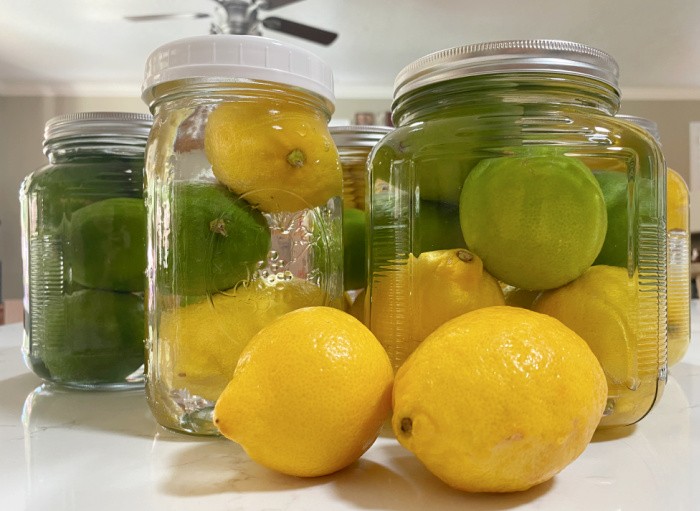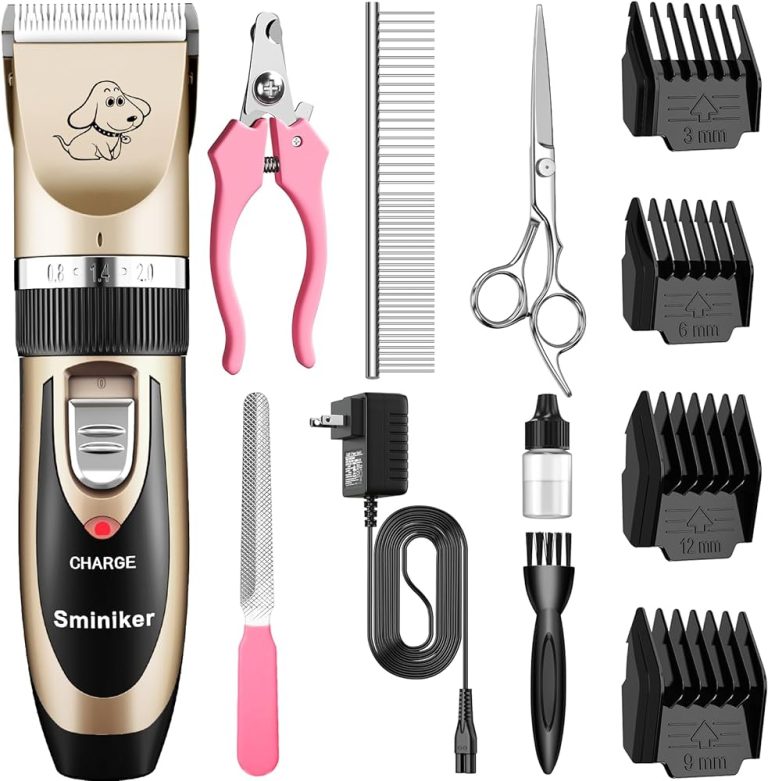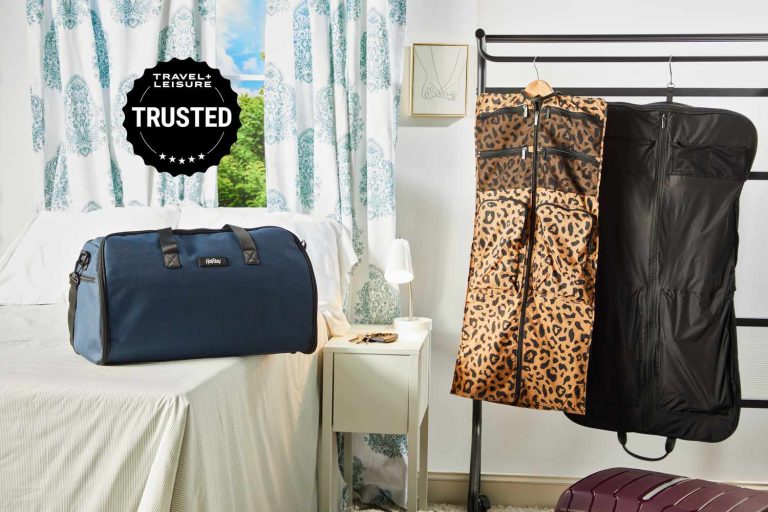9 Best Ways to Store Lemons: Keep Them Fresh All Year Round
Lemons add a zesty burst of flavor to your dishes, but keeping them fresh can be a challenge. Whether you’ve bought a bag from the store or picked them from your garden, knowing the best ways to store lemons ensures you get the most out of these vibrant fruits.
In this article, you’ll discover nine effective methods to keep your lemons fresh and juicy for as long as possible. From simple countertop storage to more advanced techniques, you’ll find practical tips that fit your lifestyle and needs. Get ready to make the most of your lemons with these easy and efficient storage solutions.
Storing Lemons in the Fridge
Storing lemons in the fridge is a great way to extend their shelf life and keep them fresh. By following these methods, you can enjoy your lemons for weeks rather than days.
Using the Crisper Drawer
Place lemons in the crisper drawer to maintain optimal freshness. The lower temperature and controlled humidity of the drawer help to extend the lemons’ longevity. Arrange the lemons in a single layer, ensuring they have some space to breathe. This prevents mold growth and keeps them fresh for up to a month.
Tips for Refrigerator Storage
Wrap lemons in plastic to prevent them from drying out. A food storage bag or tightly-sealed plastic wrap helps lock in moisture. For cut lemons, store them in an airtight container to keep them from absorbing other fridge odors. When stored this way, lemons can last up to a week without losing their juiciness.
Using the Countertop for Lemon Storage
Storing lemons on the countertop is a convenient option if you intend to use them quickly. Here’s what you need to know to make the most out of this method.
Ideal Conditions for Counter Storage
Choose a Cool Spot: Place lemons on a cool, dark part of your countertop to keep them fresh longer. Avoid direct sunlight to prevent premature ripening.
Use a Bowl: Store lemons in a bowl, ensuring ample air circulation. Overcrowding can lead to bruising and early spoilage.
Keep Dry: Make sure your lemons are dry before placing them on the counter. Excess moisture can lead to mold growth.
Pros and Cons of Countertop Storage
Pros:
Easy Access: Lemons are always within reach for quick use.
Aesthetic Appeal: Fresh lemons can enhance your kitchen’s appearance.
Quick Identification: Easily spot when lemons start to age or spoil.
Cons:
Limited Longevity: Lemons last only about a week on the counter.
Vulnerability to Pests: Exposure to fruit flies and other pests.
Temperature Sensitivity: Fluctuating kitchen temperatures can accelerate spoilage.
Freezing Lemons for Longer Shelf Life
Freezing lemons ensures you can enjoy their freshness and flavor for months. Follow these steps to prepare and store your lemons properly.
How to Prepare Lemons for Freezing
- Wash Thoroughly: Rinse lemons under cold water to remove any dirt or pesticides. Pat them dry with a clean towel.
- Cut or Slice: Decide how you want to use the lemons later. You can freeze them whole, in slices, or as zest and juice.
- Juice and Zest: If you prefer lemon juice or zest, use a juicer and zester. Pour the juice into ice cube trays for easy portioning.
- Blanching (Optional): For whole lemons, blanching can help preserve texture. Boil for 60 seconds, then plunge into ice water.
- Dry Completely: Ensure lemons are completely dry before freezing to prevent ice crystals.
- Use Airtight Containers: Place whole lemons in airtight freezer bags or containers to avoid freezer burn.
- Label and Date: Write the freezing date on the bags. This helps track the storage time.
- Store in Small Batches: Freeze a few lemons per bag. This allows you to defrost only what you need.
- Avoid Overcrowding: Ensure there’s space between lemons in the freezer. This improves air circulation and prevents clumping.
- Defrost Properly: Thaw frozen lemons in the fridge or at room temperature. This maintains their texture and flavor.
Freezing lemons is efficient and keeps them usable for a long time.
Using Glass Jars for Lemon Storage
Glass jars are an excellent way to keep lemons fresh and flavorful. They provide an airtight seal that helps maintain the lemons’ quality.
Vacuum Sealing in Jars
Using vacuum sealing in jars extends the shelf life of your lemons. Start by washing and drying the lemons thoroughly. Slice or leave them whole as per your preference. Place the lemons in glass jars, making sure to leave some space at the top. Use a vacuum sealer with an appropriate lid attachment to remove the air from the jars. This method drastically reduces oxidation and keeps your lemons fresh for weeks.
Lemon Storage in Water-Filled Jars
Storing lemons in water-filled jars keeps them plump and juicy. Begin by rinsing the lemons, then place them whole in a glass jar filled with water. Ensure the lemons are fully submerged and close the jar tightly. Store the jar in the refrigerator, changing the water every few days to prevent bacteria growth. This method can extend the freshness of your lemons for up to a month.
Utilizing Vacuum-Sealed Bags
Vacuum-sealed bags are an excellent way to keep your lemons fresher for longer by removing air that leads to spoilage. Here’s how to get the best results using this method.
Step-by-Step Guide to Vacuum Sealing
- Wash and Dry: Start by washing your lemons thoroughly under running water. Dry them completely using a clean towel to prevent moisture from causing mold.
- Slice or Leave Whole: Decide whether you want to vacuum seal whole lemons or slices. Both methods work well, depending on how you plan to use the lemons later.
- Place in Bag: Put the lemons into a vacuum-seal bag, making sure they’re not overcrowded. Leave some room between each lemon or slice.
- Seal the Bag: Use a vacuum sealer to suck out the air from the bag and create an airtight seal. Follow the manufacturer’s instructions for the best results.
- Label and Store: Write the date on the bag before placing it in the refrigerator or freezer. This will help you keep track of freshness.
Maximizing Freshness with Vacuum-Sealed Storage
Vacuum-sealed storage removes air, which slows down the oxidation process, keeping your lemons fresh for weeks. By using this method, you reduce the risk of mold and extend the shelf life significantly. Whole lemons can stay fresh in vacuum-sealed bags for up to a month in the fridge, while lemon slices can last for about two weeks. If you freeze the vacuum-sealed bags, you can extend the storage life even further, ensuring you always have fresh lemons on hand.
Preserving Lemons in a Zip-Lock Bag
Storing lemons in a zip-lock bag is an effective way to keep them fresh for longer.
Squeeze Air Out Technique
Ensure your lemons stay fresh by removing as much air as possible from the zip-lock bag before sealing it. Place the lemons in the bag, then press out the excess air. This method reduces oxidation, helping the lemons maintain their moisture and flavor.
Refrigeration vs. Room Temperature Storage
Refrigerate lemons in a zip-lock bag to extend their shelf life. While storing them at room temperature can cause them to dry out or spoil faster, keeping them in the fridge within a zip-lock bag can preserve their quality for up to two weeks. Always place the sealed bag in the crisper drawer for optimal storage.
Storing Lemons in Water
Storing lemons in water is an effective way to keep them fresh for an extended period. This method involves simple steps and consistent maintenance.
How Water Storage Extends Lemon Freshness
Submerging lemons in water helps retain their moisture, preventing them from drying out. The water barrier minimizes exposure to air, which can cause oxidation and spoilage. According to food preservation experts, lemons stored this way can stay fresh for over a month in the refrigerator. This technique is especially useful when you want to preserve the lemon’s zest and juice quality.
Preparing and Maintaining Lemon Water
Start by selecting a clean, airtight container. Place whole lemons inside and fill the container with cold water until the lemons are fully submerged. Seal the container tightly to prevent any air from getting in. Change the water every few days to prevent bacterial growth and maintain the lemon’s freshness. This simple routine ensures your lemons remain juicy and ready for use whenever you need them.
Seasonal Considerations for Lemon Storage
Different seasons bring unique challenges to storing lemons. Consider how temperature and humidity affect shelf life.
Winter vs. Summer Storage Tips
Winter and summer require different strategies for storing lemons. In winter, keep lemons at a consistent room temperature to avoid cold damage. Place them in a bowl on your kitchen counter, away from direct sunlight. During summer, high temperatures can quickly spoil lemons. Store them in the refrigerator’s crisper drawer, ideally within a zip-lock bag to maintain moisture.
Optimal Humidity and Temperature Conditions
Maintaining the right humidity and temperature is crucial for lemon storage. Optimal conditions are a temperature between 40°F and 50°F and relative humidity of 85%-90%. Use a refrigerator to achieve these settings. For humidity control, store lemons in a plastic bag with small holes or an airtight container with a damp paper towel. Adjust storage methods based on seasonal humidity levels in your area.
Conclusion
Properly storing lemons ensures they stay fresh and flavorful for as long as possible. By understanding the best practices for different seasons and maintaining optimal humidity and temperature, you’ll significantly extend their shelf life. Whether you choose refrigeration, vacuum-sealed storage, or even storing them in water, the key is to adapt your methods to the conditions at hand. With these strategies, you can enjoy fresh lemons year-round without worrying about spoilage.






